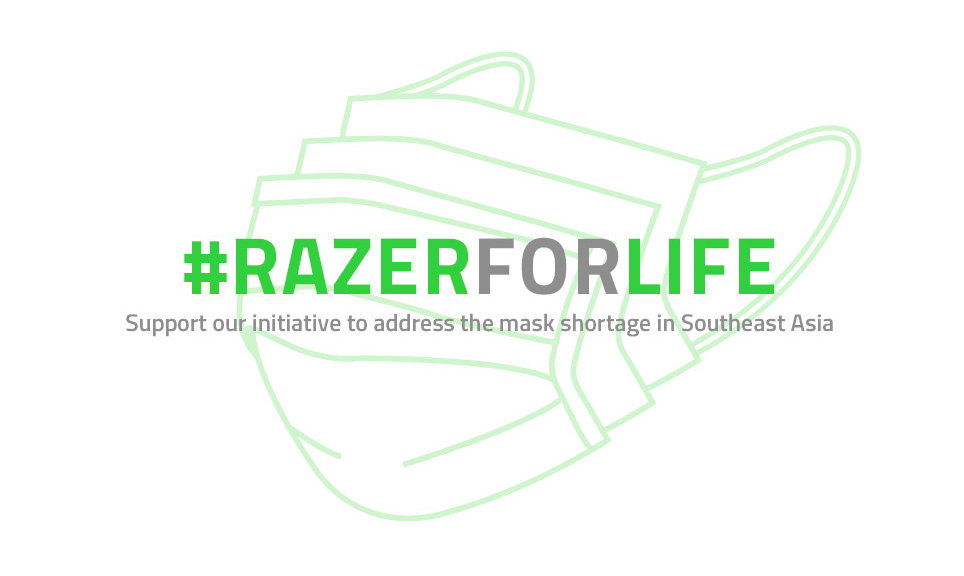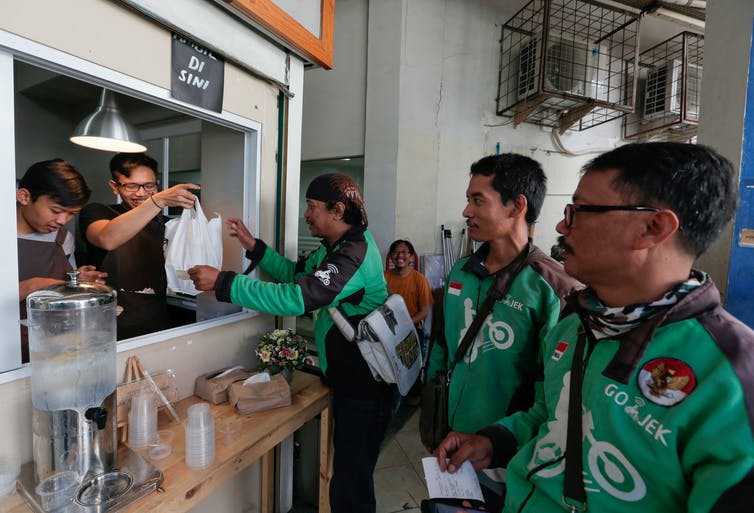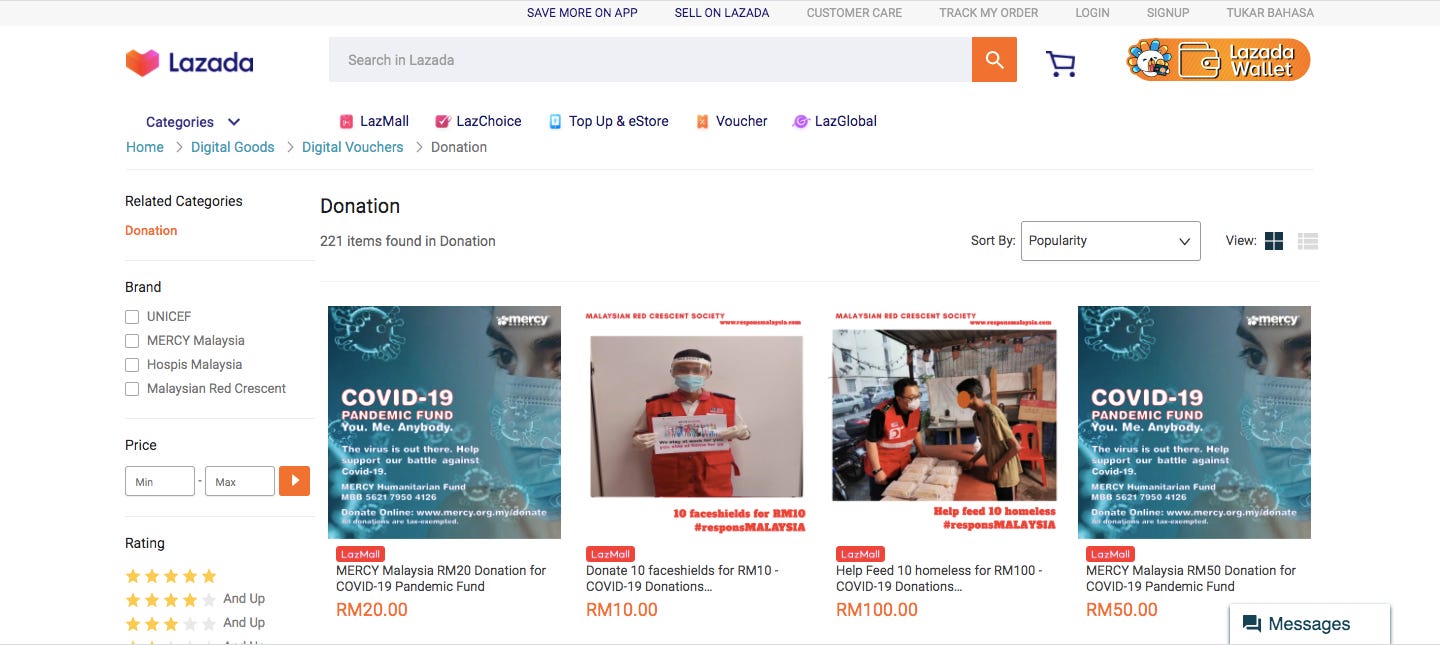
A warm welcome to the Deeper newsletter, dear reader!
You’re reading this because, just like us, you’re tired of the non-stop tech and startup news cycle, where there seems to be something new and trendy to keep up with in Southeast Asia.
What you want to know about is the important stuff that matters—period.
And that’s what we’re bringing to you. We’ll dive deep into a trending topic in Southeast Asian tech, and their impact on society (i.e. me and you).
Sound compelling? Subscribe now, and we’ll send it straight to your inbox:
Without further ado, let’s dive in.

Technology has often been hailed as “society’s great equalizer”, promising to solve socioeconomic divides and open up new opportunities for underserved populations.
The belief that tech could improve lives isn’t new to this era. Consider an early ad for the cotton gin (invented in 1793) boasting that Hall’s Self-Feeding Gin “is most economical, giving satisfaction to all who have used it.”
It’s true that the cotton gin enabled plantation owners to grow bigger, faster. For many, it was an enabling technology. But—it also made the slave trade a necessity for the American South. That deepened dependency festered for years and culminated in a civil war, the socioeconomic effects of which are still felt today in the US.
This duality of positive and negative is part-and-parcel of most technologies that have shaped our world, including steel (unlocked infrastructure opportunities, dangerous labor conditions) and cars (faster transportation, more pollution).
And now, it’s 2020. The era of the cotton gin has come and gone, and in its place is the age of the Internet. The marriage of tech and business has given rise to vibrant, massive ecosystems of startups and VCs and investors around the world, including in ASEAN.
Case in point: as recently as 2012 there were zero active angel investors, VCs, or accelerators in Thailand. In 2018, Techsauce recorded nearly 180. This incredible growth is mirrored across most ASEAN countries, including Indonesia, Malaysia, and the Philippines.
But how much of that growth is ethical, and is it truly leading us to a better future?
TL;DR: The current method of growing a startup is unsustainable, and another catastrophe could cause the entire system to collapse.
- An eventual collapse of the status quo?
- What are startups doing during this time?
- GrabFood: Profiteering or providing support
- Collective efforts to bridge the gap
- Tech giants are doing their part
- What roles are companies supposed to play?
- And what is the human cost of growth?
To truly create a better world, we need to delineate boundaries between private companies, governments, and their people—and design legislation to govern the responsible and ethical use of tech.
An eventual collapse of the status quo?
VCs and corporations pour millions into unique companies and promising teams, betting on the chance that they’ll become profitable—and stable—sooner or later. We all want to believe that with enough guts, we really can change the world through tech.
Still, over the past year or two we’ve begun to see cracks in this system. Some of the most well-funded startups also experienced the most spectacular collapses. Lippo sold two-thirds of their stake in digital payments provider OVO thanks to a cash burn of over US$50 million per month; HonestBee fell apart (still owing over US$230 million) throughout 2019. Billions are being ploughed into these companies with little to show.

And the moment things go bad—like in the case of a pandemic—startups quickly go out of business or implement major layoffs, like being taken off life support. This happened to Zilingo, which suddenly laid off 35 workers via Zoom and asked them to sign a termination agreement the same day.
Thanks to COVID-19, demand across many industries has dropped, leaving a majority of startups low on cash and struggling to function. Funding is expected to shrink this year; venture capitalists told Reuters that for the foreseeable future, it will also be nigh-impossible for new companies to raise. Even companies with millions in funding may not be able to stay afloat beyond several months without another cash infusion.
Sudhir Sethi, founder and chairman of Bengaluru-based venture capital firm Chiratae Ventures, said, “When you look at pre-COVID business models, half of them will not survive post-COVID.” In what often seems like an endurance race to see who can burn cash the longest, sometimes the better option may be to play a whole different game.

Prior to the pandemic, regional funding rounds were already becoming smaller and more spread out. Investors are becoming more selective thanks to a growing supply of cash-desperate startups, indicating that in the coming years we will most likely see fewer early-stage mega-deals. P2P and other alternative financing options will also become even more popular as both VCs and banks tighten their purse strings.
COVID-19 is further accelerating the collapse of the cash-burn method of business-building—or, at the very least, highlighting some of its most glaring flaws.
What are startups doing?
Businesses—even those that were started in order to create a social impact—need money to survive. That much is obvious.
But in the face of a pandemic, many are expected to give back and support their stakeholders. In such a time, what role are tech companies expected to play? Should they gun for profit and ensure their own ends are met—or stay true to their rhetoric and do good whenever possible, even if it hurts?
Let’s take a look at some examples.
GrabFood: Profiteering or providing support?
A recently viral post by Colin Chen, who runs an F&B outlet in Singapore, accused GrabFood of taking more than the advertised 30% service fee in commissions during COVID-19. This spurred netizens to urge delivery apps to lower their commission fees.
F&B outlets, who often rely on daily cash turnover thanks to perishable inputs, are struggling with an unprecedented decline in businesses—and many must rely on ride-sharing and delivery apps to sell their goods.
Grab issued a response to the post explaining that increased demand did not lead to profits:

The company also clarified that they did not reduce riders’ incentives or make changes to riders’ fees. Instead, across most countries where it is active, Grab has released marketing campaigns and promotions to bring attention to smaller F&B businesses, created self pick-up and no-contact delivery options, and created training sessions for restaurants.
All of these measures, though helpful for the smaller businesses in need, do incur additional marketing and tech costs on Grab’s end. Reportedly, the GrabFood unit has not reached breakeven, meaning that the much-needed help it’s providing comes at the cost of its own profitability. With any luck, Grab’s support could help sway consumer behavior and sentiment in its favor post-COVID.
Collective efforts to bridge the gap of need
Many eCommerce platforms, online shopping apps, and small businesses have creatively introduced ways to help those in need. You can see digital vouchers for COVID-19 donations on apps like Shopee and Lazada, where donations start from as little as 10 Malaysian ringgit.
In Indonesia, Tokopedia, OVO, and Grab have each pledged IDR 1 billion (about S$95,500 each) of their own funds to provide medical supplies for first aid workers. Tokopedia had also donated more than 150 thousand mouth masks for Indonesian Workers (TKI), Household Assistants (ART), ship workers, and other migrant workers who tended to not have access to health products.
Startups are spreading goodness in the face of COVID-19. But are they taking on too much risk to do so? Interestingly, none of the three companies are fully profitable yet—they each still have debts to pay to their own investors.
Tech giants are doing their part
Instagram activity—especially Instagram Stories—has increased by up to 40% worldwide during the pandemic.
In response, Instagram has released new features to help users shop and share directly within the app. A “gift card” button for businesses allows users to purchase gift cards through a company’s site, creating a valuable stream of income; the Support Small Businesses sticker on IG lets users share a small preview of some of their favorite brands.

A rumoured Food Orders sticker allows F&B outlets to promote their menus and allow customers to simply click on the sticker to be directed to their food delivery app (currently, only GrabFood is available, and the feature has not been rolled out on a major scale—yet). And Fundraisers open on Facebook to a link where users can directly donate.

Instagram/Facebook is collaborating with educational platforms around the world to provide free virtual training for small business owners and marketers. It has also invested and donated upwards of a hundred million dollars into COVID-19-affected businesses.
What roles are companies supposed to play?
So, it seems that companies are trying to uphold the general rhetoric of “tech can help save the world.”
Even home-grown gaming company Razer is joining in: it entered the mask business in May by announcing plans to self-manufacture and donate over 5 million masks to Singaporeans.

What’s the catch? Reportedly, you’ll need to sign up for Razer Pay—giving up your name, residential address, and national ID in the process—in order to access the “free” masks from vending machines.
Although every business who has the resources should lend a hand, we must take a long, hard look at the actual costs we’re paying for their support. Overreliance on the kindness of private companies in times of crises may ultimately leave us irreversibly dependent, or locked into less-than-fair trades. This can be damning when another crisis happens, or even in times of peace, when companies revert their temporary policy changes and drastically reduce their social support.
At the end of the day, whose responsibility is it to ensure that the populace’s needs are met?
And what is the human cost of growth?
Over-reliance on tech startups and organizations can also be deadly because their own growth has never been sustainable. Tech giants like Facebook and Amazon depend on the exploitation of vulnerable people in order to operate, making any symbiosis of governments and tech companies even riskier.
Inconsistent labor practices are doing harm
Some analysts say the lower barriers to the workforce and the rise of remote work will lead to more short-term engagements—but this hardly seems sustainable. There’s the question of whether tech companies are really helping the underserved or whether they’re the oil tycoons and plantation lords of our century—taking advantage of cheap human labor and swapping them out whenever they’re broken (due to injury or exhaustion).
In too many cases, the Internet economy has become a free-for-all gig economy. The millions of workers registered on gig platforms are trapped in a race to the bottom in order to survive, with little to no protections in place to ensure they earn a living wage. It is difficult to equalize sociopolitical divides across countries where COLs and yearly minimum wages can vary by magnitudes.

And in a time when millions are struggling with reduced wages and unemployment, Jeff Bezos is reportedly on track to become the world’s first trillionaire. The Amazon fortune is built on well-documented exploitation of the company’s exhausted workers, many of whom report “hellish workdays” where they “are treated like robots.”
Here is the most disturbing and disgusting headline I think I’ve ever seen.https://t.co/ydrgqDIrBC
— Isiah 🌹 (@forevertawl) May 13, 2020
Underserved cohorts must not be left behind
Despite claims that digitalization will transform and elevate communities, many continue to be left out of the digital revolution—such as the elderly, the impoverished, the underbanked, and those in remote locations.
Paying for, setting up, and accessing new technology is already a challenge for many people, and fitting into the digital or tech-based workforce often requires completely different skill sets that take months or years to master.
Shaky surveillance laws threaten consumer rights
There are claims that private companies such as Apple and Google are better-equipped to contact trace and fight COVID-19 than many local governments. Whereas branches of governments are mostly confined to their own geographic jurisdictions, multinational companies have data on and access to huge swathes of the globe.

The need for information is so great that Wired claims that Surveillance Could Save Lives Amid a Public Health Crisis, and even noted privacy activist Maciej Cegłowski flat-out stated that We Need A Massive Surveillance Program. But this overreliance on private companies and the willingness to give them as much power as they need to “solve” the pandemic could see individual privacy rights eroding in the name of “the public good.”
Many possible worlds await us
We can see a wide variety of possible futures post-COVID-19 simply by looking at different countries’ approaches to data privacy and consumer protection during the pandemic.
South Korea’s codified data protections have resulted in effective handling of the disease and high rates of citizen trust. Surveillance of and access to personally-identifiable information (sensitive cell-phone G.P.S. data, credit-card payment information, and travel and medical records) are only legal in the context of disease outbreaks, says Kim Min-ho, a law professor and one of the country’s human-rights commissioners.
Jung Eun-kyeong, the director of South Korea’s Centers for Disease Control and Prevention told the press, “We will balance the value of protecting individual human rights and privacy and the value of upholding public interest in preventing mass infections.”
If only all organizations could do the same. Adtech firms in the USA have been scrutinized for sharing PII with companies and media publications in order to publish “opportunistic studies.”
In China and Israel, governments are amassing huge databases of the most minute data points with phone tracking, facial recognition, and mandatory app downloads.
(Some are reporting that, in China, this is being used to round Uighurs, dissidents, and other minorities into concentration camps.)
South Korea and Taiwan seem to be the exceptions to the rule. In most other countries, little to no protections are being implemented to manage the use and collection of pandemic data—leaving glaring opportunities for organizations to manipulate, exploit, and control consumers in eventual times of peace.
What lies ahead?
It’s clearer than ever that startups need to become financially solvent—both for their own sake and for the public good.
Customers haven’t been paying the full cost of services provided—so far, that burden has been shared with VCs and corporations and governments—and eventually, funds will run out. Either we fix things now, or another crisis hits and the entire system crashes. Catastrophes and disasters will always happen—it’s only a matter of when.
And on the ethical and legal front: tech companies and the governments that seek to partner with them are the largest, fastest-growing, and most powerful organizations in the world. It is our responsibility to urge these companies to use their power responsibly. In order to move securely into a digital world and create technology that truly helps—rather than harms—large groups of people, we must consult with the many, many stakeholders who use and are impacted by that technology.
That means international cooperation, human rights legislation and codified data protection, careful checks and balances in place to prevent any one organization from gaining too much power, and careful consideration as to who implements technology (and how). All of this requires a monumental effort from all parties involved in order to enter a more equitable future.
As a society, we need to take off our blinders and ask, “What kind of a world do we want to create—and who are we saving it for?”
<
p style=”text-align: center;”>P.S. Like what you read? Get articles like this in your inbox.
<
p style=”text-align: center;”>Or join the discussion on the Deeper LinkedIn Group. We’d love to hear from you!






